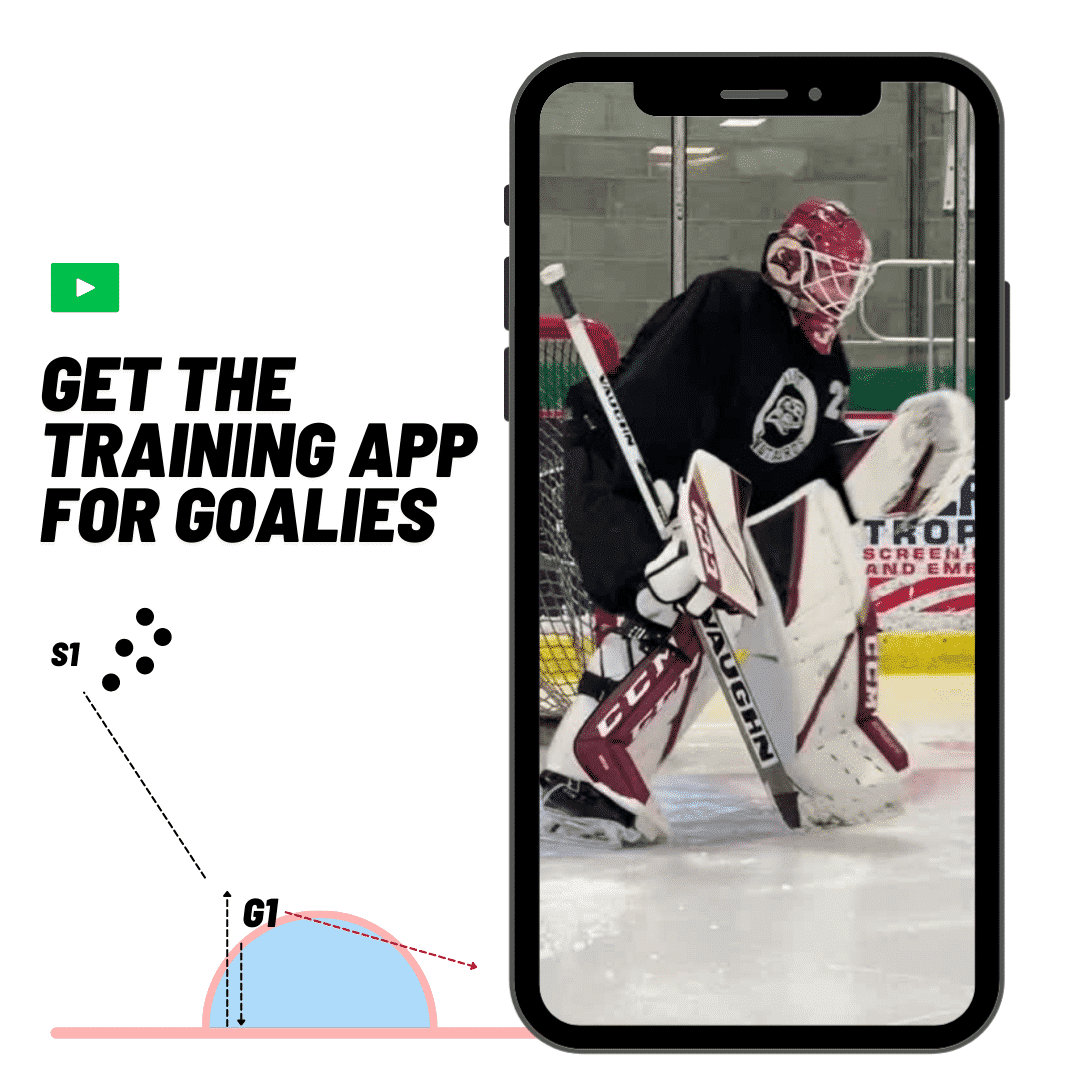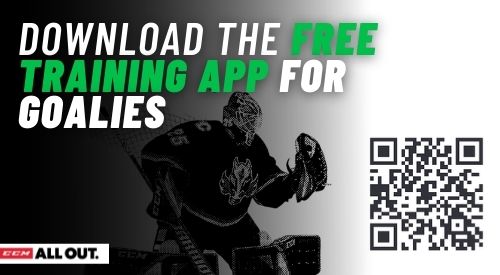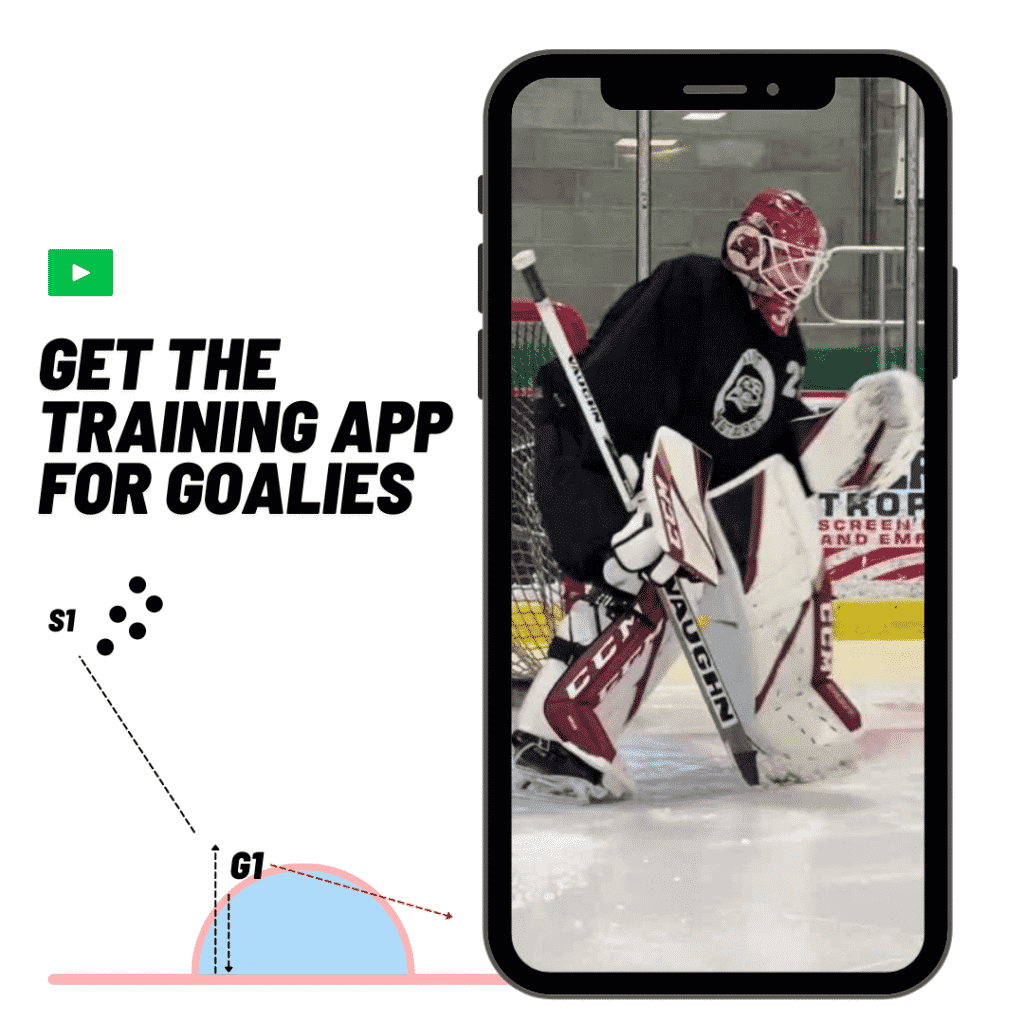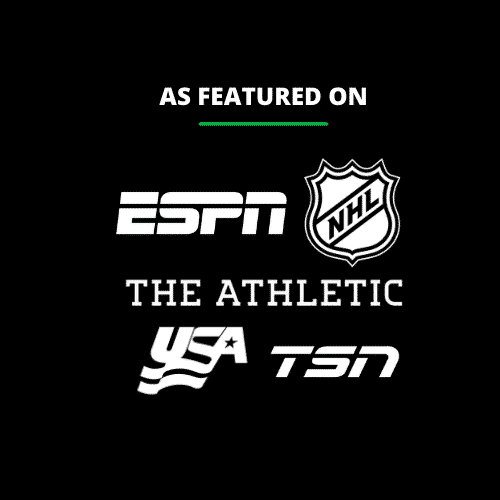So, you’re a goalie and you’re looking to improve your odds of getting to the next level. Call it getting scouted, being recruited, whatever you’d like to call it. Are there certain things that set certain goalies apart from their peers? This article, and list, could be endless. With that in mind, we’ll split it into the three main scouting categories for goalies. Within each category, there are multiple sub-factors that can dramatically impact an athletes trajectory in the scouting process.
The three main things goalie scouts consider when scouting goalies are:
- Proven Ability
- Technical Skillset
- Ceiling and Maximum Potential
When it comes to scouting athletes, not just goalies, folks tend to think that scouts are only on the prowl for those with an elite technical skillset. While to a certain extend that is true, that’s just 33% of the puzzle. The first third, proven ability, is what’ll get somebody at your game or tournament. The last, and arguably the most important, pushing the ceiling (which includes physical characteristics such as size), has nothing to do with your current proven ability and technical skillset.
So what do I mean by all of this? Let’s take a look. If you’re a goalie looking to improve in order to continue your playing career, you’re in the right place. While this article could be way longer, we’ve highlighted the main three areas in which goalies are scouted on. Becoming a better goalie is a lifelong endeavor, whether you’re just starting out or have been playing for years.
Put a goalie coach in your pocket with the Goalie Coaches training app, built specifically for hockey goalies. The Goalie Coaches app has been used at every level of play, up to the NHL. Unlock hundreds of drills, game specific scenarios, and more inside the free app, today.
What Do Scouts Look For In Goalies?
Of course, this varies by level. In this case, let’s assume we’re a scout looking for potential candidates to attend a USHL Junior Hockey camp.
Proven Ability
Of the three most important categories of scouting goalies, for me personally, proven ability is the least important. The reason being, it has to do with statistics. While great stats can get a scout who wouldn’t otherwise have interest, at your game.. they are not the end all be all.
What is proven ability? Statistics.
Maintaining a great save percentage, goals against average, and winning games does make a difference. In leagues where Goals Saved Against Average (GSAA) is measured, it’s a critically important statistic to measure.
Just how much of a difference do great statistics make? That’s up for debate. With that said, when it comes to discovering talent between the pipes early, there are many scouts who are simply looking for goalies who win. This is a great indicator that a goalie is out-performing his or her peers and a closer look should be taken.
Technical Skillset
While just 33% of the puzzle, technical skillset is where goalies must shine when a scout takes a closer look. For many, there may only be one chance. A scout may be attending a game, watching a completely different prospect, where they begin to notice your skillset. Of course, technical skillset is one of the single most important factors that will help you get recruited as a goalie. With a strong technical skillset, you’ll display better proven ability and a higher ceiling.
I briefly wrote about this in my bio over at Minnesota High School Hockey Talk.
Skating Ability
Simply put, if you’re not a good skater, you likely won’t pass the initial “Proven Ability” test that draws eyes to your game. In the world of goaltending, there are quite literally thousands of goalies at any particular level of play. You must shine in your skating ability. Demonstrate a truly elite skating ability for your level of play. Goalies turn heads when they blow their peers out of the water in the skating ability department.
The hard reality of skating ability and goaltending in general is this; you’re simply not putting in the work necessary to become an elite skater. Goalies who push and make it to the next level do not spend time scouting their peers, trying to determine a baseline skating ability. They push themselves to the maximum level in their training to continually break their own mold of performance, without being told.
Want to become an elite goalie? First, become an elite skater.
Rebound Control / Second Save Ability
Making a save is easy. Where elite goalies stand out is in their rebound control and second save ability. Goalies should demonstrate that they’re able to control rebounds far better than their peers. Show me that you posses the ability to think about what happens beyond the initial save by not just controlling rebounds, but putting them in a place that allows you to efficiently regain your footing.
One of the most common mistakes goalies make in their rebound control is relying too heavily on their pads. When given the chance, controlling a rebound with the stick is a far better option as the puck will end up in the netting, or high off the glass.
While it’s a major marketing point for goalie pad manufacturers, especially in today’s game, goalies who rely on their leg pads to control every shot end up kicking more pucks into high threat scoring areas than those who control rebounds with their stick when they’re able.
Puck Tracking
Really, this is a moot point. The honest truth is, elite goalies see the puck well. Very well. The best goalies see the puck better than anybody else on the planet.
NHL analysts love to spend any chance they get talking about “puck tracking” and how that goalie just “tracks the puck so well”, when in reality every goalie playing at that level sees the puck well. Sure, there are some who are likely better than others, but the difference is not as night and day as you’d think it to be.
If you plan on advancing to the next level, you had better see the puck better than anybody around you. Committing to working on your hands is one of the single best things any goalie can do for themselves.
Goalies with elite puck tracking ability see the puck from release, all the way into their body. As a result, they use their glove and blocker with above average ability, reducing the amount of scoring chances from rebounds. Subsequently, they give up less goals, which leads to better stats and more opportunities for their team to win.
One of the biggest things that elite puck tracking goalies possess is a much wider catching area than their peers. This is demonstrated in the graphic below, but in doing this, they have a better glove hand and more control over in zone play.
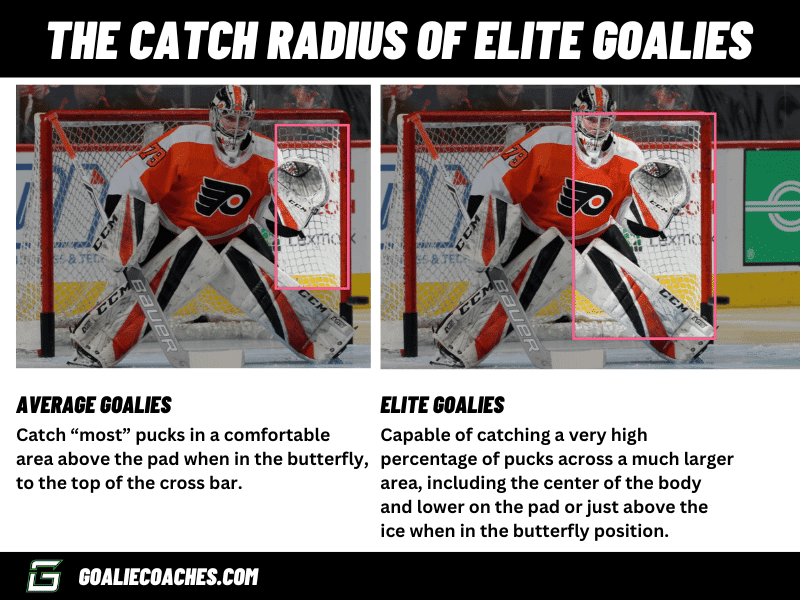
At every level, the pace of shots increases from the previous place on the ladder. Goalies can separate themselves from the pack by committing to being the best possible puck watcher they can be. The results will speak for themselves.
Puck Playing Ability
Play the puck when given the opportunity. Now, I don’t mean play the puck so much that you cost your team chances, but one of the easiest ways for a scout to read confidence is in how you play the puck.
If you’re a goalie who doesn’t force themself to get uncomfortable playing the puck, how does that affect the rest of your game preparation? Are you somebody who limits themself to the box you’re currently in or can you think outside of it?
Like any resume in the working world, goalies need to stand out thousands of other applicants.
Between skating and puck tracking, there are only so many ways a goalie can distance themself from the pack. Possessing a high hockey IQ that’s demonstrated through calculated risk puck play is a very desirable trait for scouts looking at goaltenders.
Now again, every goalie at the NHL level can play the puck. But, if you’re one who can play the puck in such a way that you’re changing how other teams approach their game plan towards your team, you’re a huge advantage on the ice.
I write this with tongue in cheek, as I do not intend for goalies to go out and play every single puck possible. I know of very few situations (if any) where a scout has signed a goalie simply on puck playing ability. But, it does make a difference when it comes to demonstrating confidence and it will set you apart from a goalie with an identical skillset.
Composure
Remember earlier, when I wrote that many scouts have a goalie come across their radar while watching another player?
If you have one chance to draw eyes to yourself, it had better not be while you’re throwing a fit.
Just because some NHL goalie goes off the deep end and shatters their stick over the crossbar after an overtime loss, does not give you permission to do so.
There are enough great, even elite, goalies in the world that a head case is an easy pass for a well run team.
Finding a diamond in the rough is every scouts dream. They will look good, and the team will benefit. This means finding somebody who will give them the opportunity to play in league championships, no matter the level.
If you can demonstrate an elite level of composure, you give scouts and teams a lot of confidence in your unwavering ability to focus when the moment matters most.
Gamesmanship versus distraction
Far too often I’ll watch games where goalies spend time hacking away at players in front of them. Or worse, going out of their way to interfere or trip a player. This is a clear sign that the athlete is distracted and not committed to the team goal of winning that game.
There is no easier way for a goalie to tell me they’re not committed to going to the next level than by them wasting time tripping or hitting another player, or by fighting after a whistle. Not only have you just shown the other team that you have thick skin, you run the risk of hurting your team by generating a penalty.
So what’s gamesmanship?
Playing the puck, communicating with your teammate, and skating back to your crease, giving your teammate time to leave the area safely. I write this with extreme caution, as this has little, if any, to do with goalie scouting in hockey. If you want to give your team an advantage, do it through your elite goaltending ability your advancement will take care of itself.
With all that said, composure comes in two forms. Mental composure and athletic composure.
Composed goalies are efficient in the way they move. They do not take themselves out of position often. They know when to uncork their elite athletic ability and when to be patient, letting the puck come to them.
A high level of physical composure between the pipes is not something that comes overnight, it’s also something that is rarely taught, but it is something that every goalie should work on to the best of their ability.
Remember, when you’re skating around in the crease, you’re not demonstrating that you have the best form possible. Great form is demonstrated through great composure. It’s demonstrated by not taking yourself out of position and by knowing how to control a rebound.
Don’t overthink this one, but absolutely do not overlook it. There are great goalies everywhere, do not be a coaches nightmare.
Ceiling and Maximum Potential
For those of you still with me, you’re probably wondering when we start talking about height and physical characteristics.
In reality, the majority of goalies in the NHL are 6 feet, or taller. For those that say “you’ll never make it, you’re not tall enough”, I respond; worry about that when you get there.
I hear it all to often amongst parents and fans, “they’re a great goalie, to bad they’re not a little taller”. If you’re a goalie who does not have it in the size department, make today the last day you worry about something you’ll never be able to change.
Instead, focus on things you can control. From Junior hockey, to Major Juniors, and even the professional ranks, there are goalies who are not considered “NHL tall” that have carved out a niche for themselves. You can absolutely advance to the next level without being 6’3”.
Quite simply, there are far to many variables out there for a goalie to work on to become the best possible version of themselves that they can become, without focusing on a god given characteristic such as height that they’ll never be able to fix.
How High Is Your Ceiling As A Goalie?
Hitting the ceiling does not, of course, mean physically hitting the ceiling with your height.
A ceiling is some projection of where you can go. Scouts refer to a goalies potential ceiling generally because they’re missing a certain part of their game. Outside of sheer athleticism and physical traits, most every thing in goaltending can be taught.
As a goalie who wants to be scouted to advance to the next level, it is important to maximize your potential ceiling by working on all facets of your game, not just the ones you are poor at. If you’re a great skater, you should not stop working on your skating. The same goes for every other part of your game.
Hockey Goalie Scouting FAQs
The biggest piece of advice I have for any goalie wondering how they can be recruited, or scouted, is to start working on your game so that your results cannot be ignored. Being recruited to play hockey is every goalies dream, but it is not a simple process. If you’re looking to be recruited to play hockey you must outperform your peers in every aspect of the game, period.
Will attending camps help me get noticed?
When it comes to getting looks as a goalie, the single best thing you can do for yourself is to put together a stat line so good you simply cannot be ignored. Now, stats are not everything. Generally speaking, any look is a good look, so going to camps can help you get noticed.
There are plenty of goalies out there. Many teams have the benefit of a large pool to choose from, whether it’s local goalies, or simply because everybody wants a shot in their league. Attending camps is not a guaranteed way to make a team but for those with a long shot and little attention, it certainly will not hurt.
Goalies (and parents) be aware that for many junior teams, pre draft camps (to a certain extent) are a revenue generator for the team. If you’ve gotten an invite to a camp, go in with zero expectations. Your preparation will speak for itself, know that there will be many other very good goalies alongside you at camp, and have fun with the process. This is supposed to be fun!
What should I be doing if I am not getting scouted as a goalie?
Sell yourself. You should start filming practices, games, and individual skill drills to put together a highlight tape that you can send to prospective teams. Scouts cannot be everywhere all at once and this process is not as simple as you might think.
I have heard far too many stories of athletes relentlessly sending out their game tape to prospective teams and this actually working, for me not to tell goalies to try it. It simply cannot hurt your chances.
What’s the worst that happens? A team tells you they’re not interested? Such is life. Move on and try, try again.
If you want to become a great goalie, start by committing to your craft. Learn everything you possibly can about the position and dedicate yourself to your craft both on and off the ice. Consider getting our training app for goalies, download at the link below.
Put a goalie coach in your pocket with the Goalie Coaches training app, built specifically for hockey goalies. The Goalie Coaches app has been used at every level of play, up to the NHL. Unlock hundreds of drills, game specific scenarios, and more inside the free app, today.
